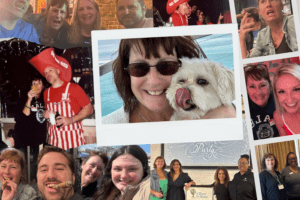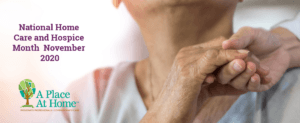
National Alzheimer’s & Brain Awareness Month is a call to action for Americans to be aware of Alzheimer’s and its effects on the brain and cognitive function, to raise awareness of the disease, and to support and stand with those diagnosed.
Here at A Place At Home, we share research, data, and resources to educate and spread the word about Alzheimer’s and lend our support in the fight against the disease.
Alzheimer’s has hit an all-time record of affecting over 6 million Americans. It has become the sixth leading cause of death in the U.S. and the most common cause of dementia among adults 65 and older. By 2050, an estimated 14 million Americans will be diagnosed with Alzheimer’s.
Alzheimer’s is a brain disorder that slowly deteriorates one’s memory, thinking, and problem-solving skills. Its attack on the brain’s cognitive function leads to the inability to carry out basic activities of daily living. These difficulties occur from damaged or destroyed nerve cells (neurons) in the brain, eventually leading to the inability to perform bodily functions such as swallowing and walking. As the disease becomes more terminal, those diagnosed become bed-bound and require around-the-clock care.
The effects of Alzheimer’s can begin to cause changes in the brain a decade before showing symptoms. Each stage of the disease is determined by the severity and pace of neuron damage.
Early detection and a diagnosis provide an individual with more time for treatment and significant medical and emotional attention. Advancements in science and cognitive therapy have provided medicine, mindful practices, and care that lead to the slowing of neuron damage and improvements in quality of life.
If you, a family member, or a friend notices a significant lapse in memory and cognitive function or any changes in the signs below, it may be time to consult a doctor.
Signs of Alzheimer’s and other forms of dementia:
- Difficulty remembering new things
- Memory loss that disrupts daily life
- Challenges with planning or problem solving
- Difficulty completing familiar tasks at home, work, or leisure
- Confusion with time or place
- Trouble understanding images and spatial relationships
- Misplacing things and losing the ability to retrace steps
- New problems with speaking or writing
- Decreased or poor judgment
- Withdrawal from work or social activities
- Changes in mood and personality
The A Place At Home system has been supporting families and individuals suffering because of dementia for over a decade. Our professional and compassionate caregivers are empathetic and educated in the mental and physical care needs of those diagnosed with Alzheimer’s Disease and other dementias. If you’re feeling overwhelmed by your situation or are seeking senior care, reach out to us. We are here to help.
Resources:
The Alzheimer’s Association
Alzheimer’s Association Facts & Figures
The Seven Stages of Alzheimer’s Disease – Dr. Reisberg
8 Ways to Help a Loved One With Alzheimer’s
4 Tips for Reducing Alzheimer’s Stigma
9 Signs Your Loved One Needs Memory Care
Understanding the Potential Link Between Stress and Alzheimer’s Disease
10 Tips for Navigating the Holidays and Alzheimer’s






